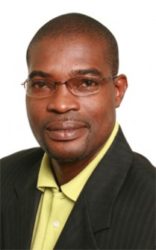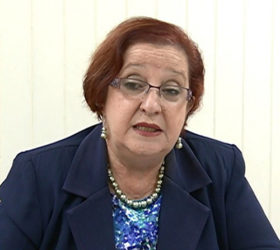The government’s Civil Aviation Bill was on Thursday evening sent to a special select committee but not before both sides of the National Assembly argued over the proposed legislation and left Speaker Dr Barton Scotland questioning the point of the decision.
“…Considering in our statements here on [the] matter, which, I would suspect very strongly, when it goes to the special select committee will see all these arguments being repeated, I wonder whether we shouldn’t give some thought as to whether this is the most suitable way of doing it,” Scotland said after listening to arguments from both the government and the PPP/C Members of Parliament (MPs) for over an hour.
Scotland said he didn’t quite understand why comments were made although Public Infrastructure Minister David Patterson, who proposed the bill, indicated that it would be sent to select committee and invited all members to be part of the committee.


“And yet, we have an hour and a half of a discussion which is likely to hear it being repeated to the special select committee… I think we are indulging ourselves beyond what is reasonable and so what I would say is that we should seriously consider whether we are making… the best use of the time and the resources available to us,” he added.
According to the explanatory memorandum for the bill, it seeks to repeal and replace the Civil Aviation Act and will bring Guyana’s aviation laws into conformity with the primary legislation regulating civil aviation in other parts of the world. It added that the bill also seeks to establish the Guyana Civil Aviation Authority, make provisions to enable effect to be given to the Chicago Convention and generally provides for the regulation, control and development of civil aviation in Guyana.
Patterson, in his opening remarks, outlined various aspects of the proposed legislation and indicated that he would like the bill to go to a special select committee where “it can be interrogated and give the entire industry and the opposition and all interested stakeholders a second chance to make any additional amendments.” He said he did not envision that “we would have any amendment… we would just be tidying it up.”
He also pointed out that he had written to all the key stakeholders and requested that they submit their queries but he hadn’t received any
Patterson also mentioned the incident last year where two aircraft left the Eugene F Correia International Airport illegally and noted that it was after the episode that the regulations were reviewed and certain weaknesses were found. The minister said that the bill will, in part, “tighten up” the weak areas and more importantly it will deal with the question of deregistration of aircraft leaving Guyana. “So even if you manage to get the plane out of Guyana, you would have to seek the permission of GCAA to have it deregistered to do anything else in any foreign jurisdiction,” he explained.
Patterson also said that he will soon bring a second bill which will outline the country’s accident investigations’ regime.
PPP/C MP Clement Rohee said that if there is one specific reason why the bill should go to a special select committee, it is that “it is somewhat tainted in the context of what is happening in the world today in respect of security of aviation and airplanes.”
He said one of the major deficiencies in the bill has to do with the threat to aviation and aircraft in the context of cyber security. “Many operators in the civil aviation industry today both in the developed and the developing world are confronted with this major challenge and the bill is deficient in the sense that it does not take into account this fact,” Rohee, a former Home Affairs Minister, argued.
Rohee said the deficiencies he has recognized and the others that exist can be discussed more in-depth and clarified at the level of the select committee.
Opposition Chief Whip Gail Teixeira said the PPP/C has already indicated to Patterson that “we support the bill going to a select committee.”
Apart from that, she said, there are a number of issues which will have to be confronted at a policy level.
Teixeira registered her concerns with the contents of bill, including what she said were the draconian powers being given to the board. She also said that the bill doesn’t really address compensation in the event of an aviation incident, while noting that the investigation of accidents is one of the real issues in the industry.
Teixeira expressed hope that in the hands of the special select committee, the bill will be scrutinized closely. “I really believe that this is an opportunity [so] that we can get it right but there are issues in this bill that show some ambiguity between the role of the minister, the role of the board, the role of the Director General and the role of the different directorates under civil aviation,” she said.
She said not enough time was spent on the bill to deal with some of the technical requirements in order to guarantee airworthiness and safety. She argued that space was given to “softer issues,” instead of what civil aviation is meant to embrace.
Patterson, in closing remarks, told the House that some of the concerns raised by the opposition could have been dealt with bilaterally had something been said earlier and he attempted to clarify some of the matters raised by the opposition MPs. He said Guyana has some unique challenges which have to be examined and incorporated into the bill. He mentioned that the role of the minister, in particular, was reduced significantly. “It’s unfortunate that the opposition, even though we have consented voluntarily to carry the bill to the special select committee, could make comments as though this government has done that without going to seek whatever comments they have,” he said, while reiterating an earlier statement that the committee could finish its work on the bill within a month.





